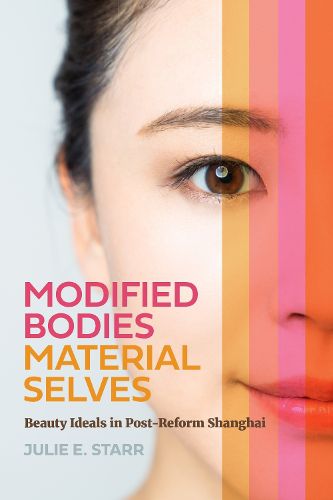Readings Newsletter
Become a Readings Member to make your shopping experience even easier.
Sign in or sign up for free!
You’re not far away from qualifying for FREE standard shipping within Australia
You’ve qualified for FREE standard shipping within Australia
The cart is loading…






Thin body, white skin, and big eyes. Such beauty ideals are ubiquitous across Shanghai, where salons and weight-loss clinics offering an array of products and treatment options beckon city dwellers with promises of a "better life." Set against the backdrop of China's post-reform era, Modified Bodies, Material Selves compares the radically different attitudes of middle-class Chinese and Western women living in Shanghai toward the pursuit of beauty. Through comparative ethnography, anthropologist Julie E. Starr parses how experiences of bodies and embodied identities, and the politics ascribed to them, are culturally produced for both groups of women. With a focus on the ways in which late capitalism interacts with different bodies, Starr joins an ongoing conversation about the impact of recent economic reforms on social life in China.
Bringing together theories of embodiment, the politics of appearance, and the bodily nature of selfhood in the twenty-first century, Modified Bodies, Material Selves contributes fresh insights to current debates in anthropology, women's and gender studies, and East Asian studies.
$9.00 standard shipping within Australia
FREE standard shipping within Australia for orders over $100.00
Express & International shipping calculated at checkout
Thin body, white skin, and big eyes. Such beauty ideals are ubiquitous across Shanghai, where salons and weight-loss clinics offering an array of products and treatment options beckon city dwellers with promises of a "better life." Set against the backdrop of China's post-reform era, Modified Bodies, Material Selves compares the radically different attitudes of middle-class Chinese and Western women living in Shanghai toward the pursuit of beauty. Through comparative ethnography, anthropologist Julie E. Starr parses how experiences of bodies and embodied identities, and the politics ascribed to them, are culturally produced for both groups of women. With a focus on the ways in which late capitalism interacts with different bodies, Starr joins an ongoing conversation about the impact of recent economic reforms on social life in China.
Bringing together theories of embodiment, the politics of appearance, and the bodily nature of selfhood in the twenty-first century, Modified Bodies, Material Selves contributes fresh insights to current debates in anthropology, women's and gender studies, and East Asian studies.